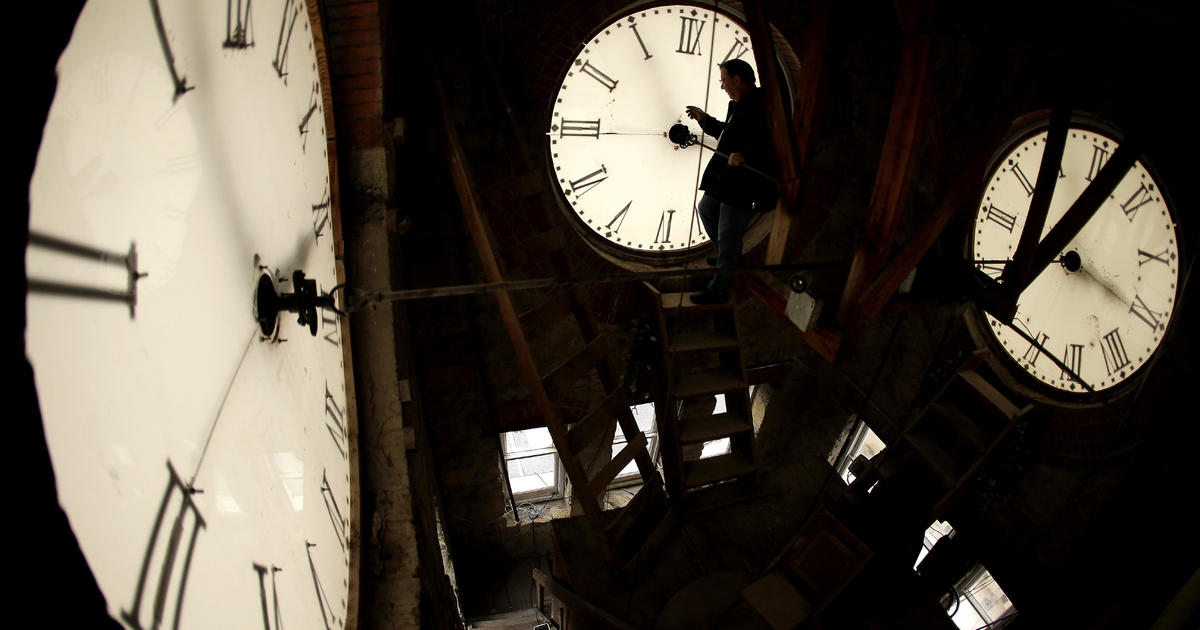
Earth is spinning faster than it used to. Clocks might have to skip a second to keep up.
CBSN
Earth's changing spin is threatening to toy with our sense of time, clocks and computerized society in an unprecedented way — but only for a second.
For the first time in history, world timekeepers may have to consider subtracting a second from our clocks in a few years because the planet is rotating a tad faster than it used to. Clocks may have to skip a second — called a "negative leap second" — around 2029, a study in the journal Nature said Wednesday.
"This is an unprecedented situation and a big deal," said study lead author Duncan Agnew, a geophysicist at the Scripps Institution of Oceanography at the University of California, San Diego. "It's not a huge change in the Earth's rotation that's going to lead to some catastrophe or anything, but it is something notable. It's yet another indication that we're in a very unusual time."

Americans are continually encouraged to sock away money in a 401(k) or other retirement plan to ensure a comfortable, if not cushy, life in their later years. Yet about half of all U.S. workers in the private sector lack access to an employer-sponsored retirement plan, a huge obstacle in building enough wealth to retire, a recent study finds.

Washington — Kilmar Abrego Garcia, a Salvadoran man who was mistakenly deported back to his home country and then returned to the U.S. for federal prosecution, may remain in federal custody, after his lawyers and prosecutors sparred over whether he would be deported immediately upon his release while awaiting a criminal trial.

 Run 3 Space | Play Space Running Game
Run 3 Space | Play Space Running Game Traffic Jam 3D | Online Racing Game
Traffic Jam 3D | Online Racing Game Duck Hunt | Play Old Classic Game
Duck Hunt | Play Old Classic Game









